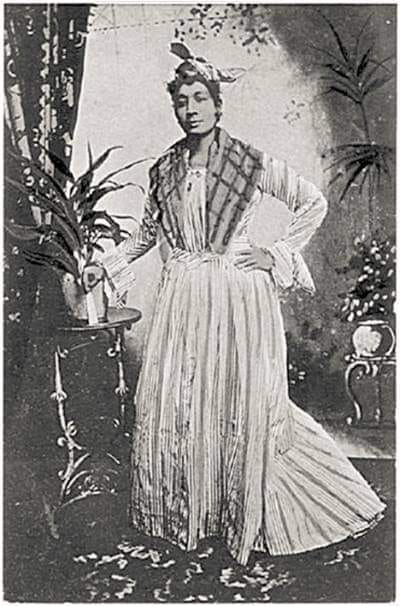|
How many of us have even heard about this woman Rosetta Smith? Of what historical significance is she to the history of Trinidad and Tobago? Another blast from the past courtesy Angelo Bissessarsingh , Historian, Author and Researcher.
Written March 10, 2013 ROSETTA SMITH, LADY GOVERNOR OF TRINIDAD It is no secret that the immensely diverse ethnic potpourri of Trinidad’s history has produced the most beautiful women in the world. Almost every white man of substance had his coloured mistress in days of yore. The fabled attraction of the mulatto woman had its effect on the fearsome Sir Thomas Picton, who ruled with an iron hand as the first British governor from 1797-1803. Picton sent forth pimps to search out a mistress. They came across Rosetta Smith, a free coloured belle who was married and who lusted after power and wealth. She was persuaded to leave her husband to share the bed of the most powerful man in the colony. As is the paradox of most tyrants, Picton was completely bazodee over Rosetta. In order to give her a personal income, he played Trinidad’s national game of bobol and awarded her the lucrative firewood-supply contract for the encamped British regiment. With this, Rosetta was able to acquire a residence, which she transformed into a high-class bordello where the most influential men of the colony (senior military officers, rich planters, merchants etc) would seek pleasures. This was often to be their bane, however, since Rosetta bribed every one of her female “friends” to extract personal secrets from the ravished men on their personal assets as well as their opinions of Governor Picton. Rosetta became the Lady Governor in all but name. She would visit well-to-do prisoners in the gaol which stood near Marine Square and elicit bribes from them to have their sentences lightened. She would whisk magnificently into all the stores and make off with whatever merchandise tickled her fancy—no charge, of course, for the Governor’s “Lady.” One Scotsman dared to protest, sending Rosetta in a huff to her man, who had the merchant dragged before him to be incarcerated, saying:“You are a pretty fellow, a damned insolent Jacobite rascal. I’ll make an example of you to show the rascals I govern that I will be obeyed.” Twice a week, Rosetta held a levee at her personal chambers where sycophants and petitioners for favour flocked thickly. There were those whose sense of honour did not allow them to grovel to Rosetta, and among these were the Widow Griffith and her two young daughters. Rosetta made them an “offer” to buy their house on Queen Street, and when the widow refused, the residence was barricaded by soldiers, thus confining the occupants to house arrest. They were even deprived of food and water, being surreptitiously aided by a gentleman neighbour who smuggled in small provisions through a back window until the soldiers discovered his guile and encamped in the backyard too. After two days of complete siege, Mrs Griffith sold the house to Rosetta for a mere pittance. Picton was recalled to England in 1803 and Rosetta married a respectable coloured man and raised the two children she had by the Governor. She died in relative obscurity, but her descendants still exist in Trinidad in several present-day families. This photo of a coloured Trinidadian woman from 1908 is what Rosetta Smith might have looked like. She died before the invention of modern photography, Source: Virtual Museum of T&T, October 8 2021
0 Comments
Leave a Reply. |
T&T news blogThe intent of this blog is to bring some news from home and other fun items. If you enjoy what you read, please leave us a comment.. Archives
May 2025
Categories
All
|


 RSS Feed
RSS Feed